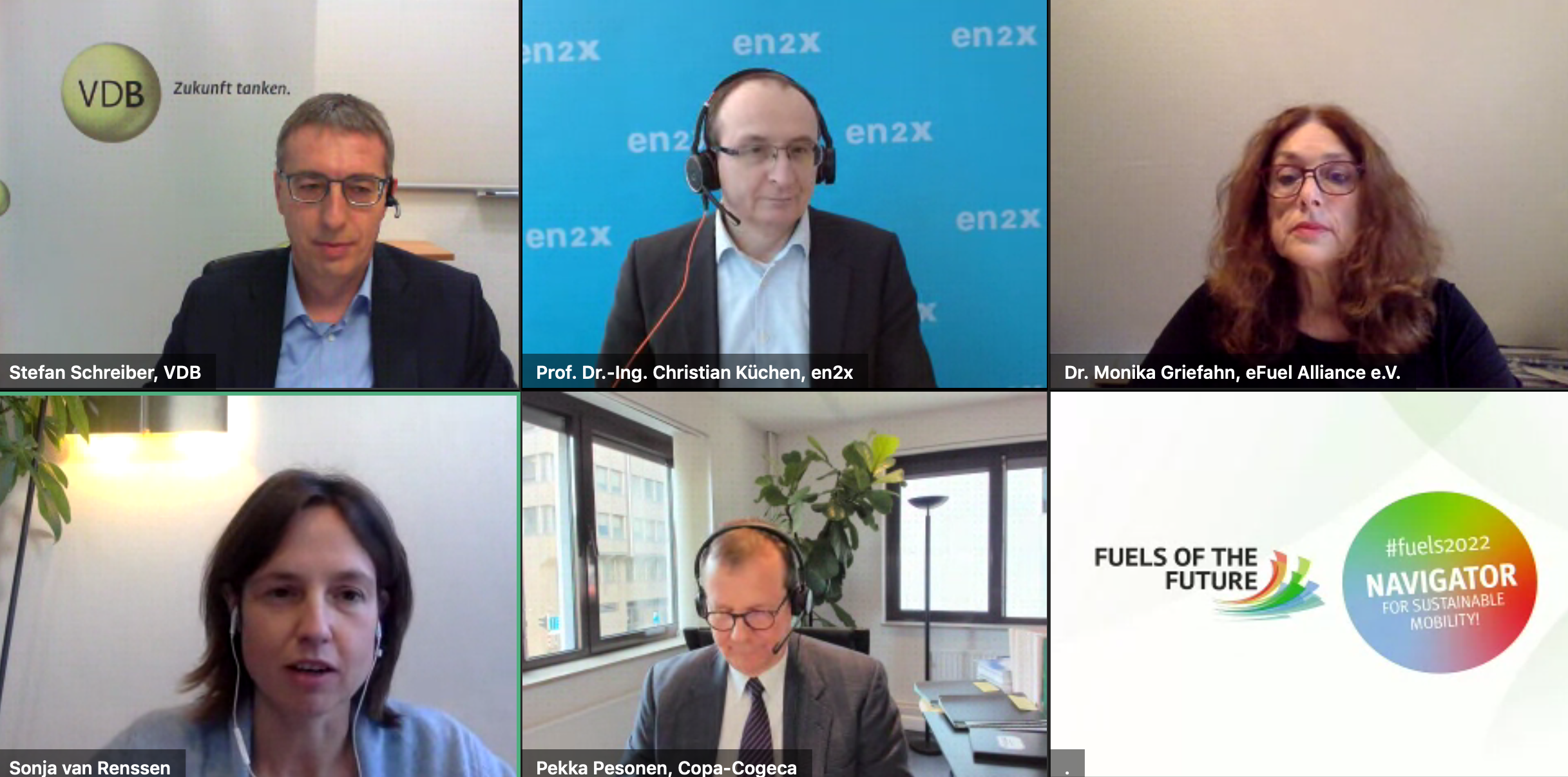“Fuels of the Future 2022”: Prepare to embrace all technology options!
During the five-day 19th Conference on Renewable Mobility, everything revolved around new trends and possible applications for renewable fuels. The five organising associations from the German biofuel industry welcomed over 500 participants to the digital conference.
“Navigator for Sustainable Mobility!” was the motto for this year’s “Fuels of the Future” conference, inaugurated on 24th January. After five days of intensive knowledge exchange, the online conference stream ends today at 16:30 (CET). During the 15 sessions, more than 60 national and international experts from the biofuel sector, the petroleum, automotive and chemical industries, as well as from the worlds of science and politics, presented the latest technologies and measures to reduce greenhouse gas emissions in the transport sector. The conference spanned the entire range of renewable fuels, from biofuels to e-fuels and hydrogen, consolidating its position as one of the world’s largest industry get-togethers for climate-friendly mobility.

(panel discussion / Session 2)
At the start of the conference, Artur Auernhammer, Chairman of the Board of the German Bioenergy Association (BBE), highlighted the need for immediate greenhouse gas reductions in the transport sector with a view to achieving the German climate targets. Sustainable biofuels, with more than 13 million tonnes of CO₂ emissions avoided in 2020, represented the vast majority of greenhouse gas reductions in the transport sector and will remain indispensable to cut emissions in the vehicle fleet in the foreseeable future, as Auernhammer emphasised. Daniela Kluckert, Parliamentary State Secretary to the Federal Minister for Digital Infrastructure and Transport, described attaining the climate targets as a “Herculean undertaking” in all sectors: “We need everything that helps lower greenhouse gas emissions in the transport sector without restricting mobility for the general public and business”. In this context, Auernhammer notes: “As biofuels are tried-and-tested and available, they are the most efficient and most rapid instrument to ensure greenhouse gas reductions without impinging on the mobility needs of all stakeholders”.
MEP Jens Gieseke, Transport Committee Vice-Chairman, was frank in expressing his opposition to a de facto ban on internal combustion engines from 2035 and called instead for a credits-based system for renewable fuels. In view of the negotiations on the “Fit for 55” package currently underway in Brussels, Gieseke advocated a technology-neutral approach to climate change mitigation in the transport sector and warned against relying solely on electromobility, given the enormous challenge that transformation entails. As he pointed out, an “all-electric” approach would also have a negative impact on the labour market and would replace dependency on fossil fuels with electricity-dependency.
Biofuel industry representatives agree that the statutory climate protection targets must become more ambitious. There is already scope to use commercially available biofuels and synthetic fuels. That makes it immaterial to debate prioritising either e-fuels or biofuels. It is vital to continue promoting and using both technologies – each has its own strengths and innovative biofuels will be needed in future too.
The consensus view was that sustainable mobility should be made easier and more user-friendly by expanding charging infrastructure and making sustainable biofuels and renewable fuels available in rural areas and for fleets. The biofuel blending ratio must likewise be boosted to tap into existing potential for climate change mitigation that can have an immediate impact.
Over 500 participants from 31 nations accepted the invitation from the five German biofuel industry associations to find out more about options for the transport transition and low- CO2 mobility at the five-day “Fuels of the Future” international conference. The associations organising the event would like to thank all partners and participants for ensuring that the conference ran successfully and for the fascinating discussions. On the occasion of the conference’s 20th anniversary, an in-person “Fuels of the Future” international conference is planned in Berlin from 23rd to 24th January 2023.


 Union zur Förderung von Oel- und Proteinpflanzen E.V.
Union zur Förderung von Oel- und Proteinpflanzen E.V.